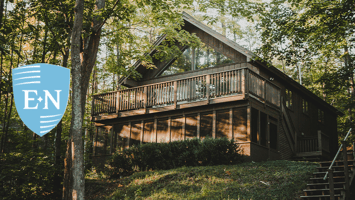Just a few years ago, taking a trip involved contacting travel agencies, booking hotel rooms and...
Exploring All the Coverages in a Commercial Insurance Package

It’s a dangerous world out there, no matter how careful a business owner is. Fires, robberies, car accidents and lawsuits happen every day. Commercial insurance can protect your business against the financial impact of these risks.
Since various types of insurance cover different risks, you will likely need multiple policies. A commercial insurance package lets you combine these coverages for cost savings while maintaining your flexibility to buy only what you need.
The value of a commercial insurance package
It’s common for a business owner to use five or even more types of insurance as part of their operations. One option is to buy each policy separately. But this is time-consuming and usually more expensive. Insurers offer discounts and better rates if you bundle multiple coverages with them. Plus, combining everything gives you only one bill to track.
A Business Owners Policy (BOP) is a common way to buy multiple types of insurance at once for a discount. However, BOPs are standardized and force you to take the entire package whether you need it or not. In other words, you could end up paying for a type of business insurance that you don’t need.
A commercial insurance package offers the best of both worlds. You can choose from a list of 10 or more possible types of business insurance. You then qualify for a bundle rate discount on your selected package.
Types of coverages included in a commercial insurance package
The types of coverage you’ll find available for a commercial insurance package depend on the insurance carrier. Some of the most common include:
- Property insurance
- Business interruption insurance
- Crime insurance
- Commercial auto insurance
- General liability insurance
- Professional liability insurance
There are others designed for specific businesses or industries and some coverages that important as a business grows. Some of these coverages include pollution liability, inland marine coverage and employment practices liability.
If you’re just starting to look at commercial insurance packages, you’ll certainly want to entertain these most common policies to determine if they’re suitable for your business.

Property insurance: Protecting your physical assets
Commercial property insurance covers your physical assets against damage. This includes your buildings, furniture, equipment, computers, and other assets. It also covers the exterior of your property, like the fence, and exterior signs.
Property insurance will pay to repair and replace your physical assets if they’re destroyed in some covered disaster. Fire, windstorms, burst pipes, and explosions are a few possibilities. These policies also cover theft.
Should something happen, property insurance will make you whole again. If you have an outstanding mortgage on any commercial real estate, the lender will likely require you to have property insurance.
Business interruption insurance: Revenue replacement for a forced closure
If a fire, windstorm, or other significant disaster temporarily closes your business, you won’t earn revenue until you reopen. But you still need to make payroll and keep up with other expenses. Business interruption insurance pays you money to replace your lost profit and covers other costs from being closed.
Crime insurance: Protection against burglary, embezzlement, and cybercrime
While property insurance covers the theft of your physical property, it doesn’t protect your cash. Crime insurance pays you back if you lose money to embezzlement, forgery, or credit card fraud. You may trust all your employees, but you never know. Plus, an outside party, like a vendor, could get ahold of private information to steal.
Crime insurance also covers losses from cybercrime. As hackers increasingly target small and medium business owners, this protection has become even more important.
Commercial auto insurance: Keeping you safe on the road
If you or your employees drive company vehicles, that’s one of your biggest exposures. Should one of you cause an accident, you would be responsible for your own repairs and liable for any injuries and property damage caused to others.
You already know you legally need auto insurance to drive in nearly every state, but personal auto coverage won’t cover the business use of vehicles. That’s why you also need a commercial auto policy.
General liability insurance: Safeguarding against lawsuits
If a customer, supplier, or other party gets injured while on your business property, they could sue you for damages. They could also sue if they get hurt using one of your products. General liability insurance would help pay for your legal bills and any settlements. If you’re especially concerned about facing a large lawsuit, you can get even more protection with a commercial liability umbrella policy.
General liability insurance will not pay if one of your employees gets injured. For that protection, you need workers’ compensation insurance (see below).
Professional liability insurance: Covering errors and negligence
Professional liability insurance covers you in case someone sues because of your work or your employees' work. This could be because of negligence, malpractice, or even an honest mistake.
This insurance makes sense for anyone providing a professional service to others, like doctors, accountants, or lawyers. You could protect your business from owing a large settlement in exchange for a small premium.
Of note, professional liability is not the same as directors and officers liability coverage. D&O coverage is not part of a commercial insurance package.
Workers’ compensation insurance: Ensuring employee protection outside of a commercial insurance package
In nearly every state, employers are required to buy workers’ compensation insurance for their employees. This insurance pays your employees' medical bills if they get injured or sick on the job. It also pays to replace their salary while they can’t work.
Insurers do not include workers' compensation insurance in a commercial insurance package, but you can discuss and get a quote for it while setting up the rest of your coverage. During this discussion, you can also determine strategies to reduce what you owe for workers’ compensation.
How to design a commercial insurance package and maximize your budget
You can design a commercial insurance package with an independent insurance agency representing multiple carriers. But you shouldn’t work with just anyone.
Designing a commercial insurance package is more detailed and involved than buying a single policy. Avoid someone who immediately starts spitting out premium quotes for these arrangements. Instead, search for a partner who first truly gets to know your business and your needs at a deep level. Together, you can determine the coverages that make sense, the appropriate limits, and the insurance policies you might not need.
To prepare for the initial meeting, evaluate your risks and where you’re exposed. Make a list of the things that keep you up at night. You could also contact industry colleagues and peers to see what insurance they prioritized. Your commercial insurance package can protect against these problems so you can sleep more easily.
Most independent insurance agencies can access the same carriers and rates when designing these packages. You’ll get less value by shopping around and more by finding someone willing to create the most cost-effective use of your insurance dollars.
The insurance experts at Ellerbrock-Norris specialize in designing commercial insurance packages. Reach out for a complimentary meeting to discuss how you can stay safe and save money by bundling in a package.








